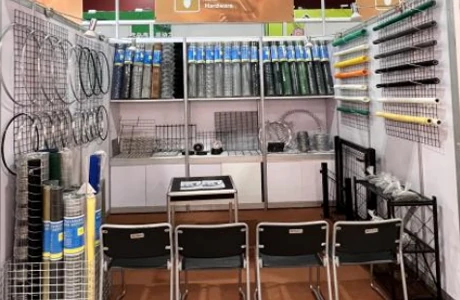Cost Comparison of Barbed Wire Fencing per Foot for Budget Planning
Understanding the Price Per Foot of Barbed Wire Fence
When it comes to constructing a barrier for privacy, security, or livestock management, barbed wire fencing is a popular choice in many regions. Its effectiveness, affordability, and durability make it a go-to option for both residential and agricultural applications. One of the crucial factors to consider when planning a barbed wire fence project is the price per foot. This article delves into the various elements that affect the cost and provides tips on how to manage expenses effectively.
Factors Influencing Cost
The price per foot for barbed wire fencing can vary significantly based on several factors
1. Type of Barbed Wire Barbed wire comes in various grades and materials, including galvanized steel, which is corrosion-resistant and generally lasts longer, and low-carbon steel, which is less expensive but may have a shorter lifespan. The most common types are standard barbed wire with two-point barbs and high-tensile wire, which offers greater strength and requires fewer posts but is often more expensive.
2. Gauge of the Wire The gauge of the wire affects its thickness and strength, with lower gauge numbers indicating thicker wire. Thicker wires are more durable and can withstand greater tension, but they come at a higher price. Most barbed wire will fall between 12.5 and 14 gauge, with 12.5 being suitable for heavy-duty applications.
3. Length of the Fence The total length required for the fence will impact the overall cost. Longer stretches will typically reduce the per-foot cost due to bulk pricing. However, project site conditions, such as terrain or existing structures, may complicate installation and affect total expenditures.
4. Installation Costs The expense of installing barbed wire fencing can significantly affect the price per foot. Labor costs vary by region, and the complexity of the installation—whether it involves laying the fence on rugged terrain or adding additional bracing for corners—can contribute to higher expenses. DIY projects can save money, but they require time, skill, and tools.
5. Additional Materials Beyond the wire itself, the price per foot must also include the costs of essential materials such as fence posts, barbed wire clips, insulators (when applicable), and stretchers. Wooden or metal posts will differ in price; metal posts are generally more durable but can be costlier upfront.
6. Local Market Conditions Prices fluctuations based on local supply and demand can significantly affect the cost of barbed wire fencing. Certain regions may have more competitive pricing due to a greater supply of materials or contractors, while rural areas may see higher prices due to limited resources.
price per foot barbed wire fence

Average Costs
As of the latest data, the average price of barbed wire fencing typically ranges from $1 to $3 per foot, which can include basic materials only. However, when accounting for installation and additional materials, the total price could rise to anywhere from $3 to $10 per foot, depending on the factors listed above.
Cost-Saving Tips
To keep expenses manageable, consider the following tips
1. Shop Around Investigate multiple suppliers for the best prices on materials. Online marketplaces can also provide competitive pricing.
2. Plan Your Layout Carefully plan the layout of your fencing to minimize waste. Precise measurements can prevent overbuying or underestimating needed materials.
3. Consider DIY If you have the skills and time, consider tackling the project yourself. There are plenty of resources available online to guide you through the installation process.
4. Volume Discounts Purchasing materials in bulk can often lead to significant savings. If you have neighbors interested in similar projects, pool resources for a bulk order.
Conclusion
Understanding the price per foot of barbed wire fencing is essential for anyone planning to undertake a fencing project. By factoring in the various elements that influence cost and taking steps to manage expenses, you can create an effective fencing solution that meets your needs without exceeding your budget. Whether for security, privacy, or agricultural purposes, barbed wire fencing remains a versatile and economical choice.
-
Space-Saving Chain Fence Hacks Vertical Gardening with Cyclone MeshNewsJul.16,2025
-
Innovations in Iron Nail Wire Production for Modern ConstructionNewsJul.16,2025
-
Creative Uses of Wire Netting Fence in Modern Landscape DesignNewsJul.16,2025
-
Barbed Wire Fence Innovations in Anti-Climb TechnologyNewsJul.16,2025
-
Architectural Uses of Umbrella Nails for Aesthetic Roof DesignsNewsJul.16,2025
-
Architectural Uses of Razor Barbed Wire in Secure Urban DesignNewsJul.16,2025




